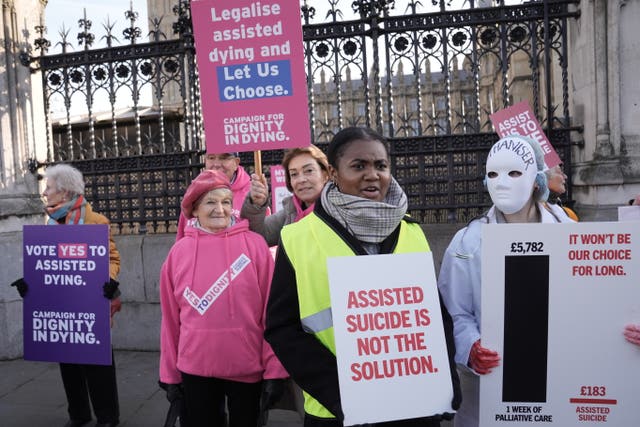Assisted dying may be legalised in England and Wales following a historic vote in Parliament that saw proposed legislation pass its first hurdle.
The majority of MPs, including British Prime Minister Keir Starmer, backed a bill that would allow terminally ill persons with a life expectancy of fewer than six months to end their lives.
There were dramatic moments in the UK’s House of Commons as MPs on both sides of the issue made passionate arguments for and against what has been termed as a “major social reform”.
Encouraging or assisting suicide is currently against the law in England and Wales, with a maximum jail sentence of 14 years.
MPs voted 330 to 275, majority 55, to approve Kim Leadbeater’s Terminally Ill Adults (End of Life) Bill at second reading.
Opposition and pro-change campaigners had gathered outside Parliament from early on Friday.

One of the Bill’s most high-profile supporters, Dame Esther Rantzen said she is “absolutely thrilled” with the result.
Pro-change organisation Dignity in Dying described the vote result as a “historic step towards greater choice and protection for dying people”, while My Death, My Decision said “thousands of people will be heartened” by it.
But Christian Concern branded this a “very Black Friday for the vulnerable in the country”, and said the Bill “must be stopped at third reading”.
The four-and-a-half hour debate in the Commons heard arguments from MPs about a need to give choice to dying people.

Labour MP Ms Leadbeater insisted her Bill has strict safeguards against coercion and said a new law would give society “a much better approach towards end of life”.
She insisted the approach was not that assisted dying would be a substitute for palliative care, but that when it cannot meet the needs of a dying person “the choice of an assisted death should be one component of a holistic approach to end-of-life care”.
The Bill will next go to committee stage where MPs can table amendments, and on Friday a motion was approved to allow the committee considering the Bill to have the power to send for people, papers and records as part of its sessions.
The Bill will face further scrutiny and votes in both the House of Commons and the House of Lords, meaning any change in the law would not be agreed until next year at the earliest.














